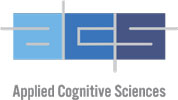It was shortly after completing his PhD in mechanical engineering – back in 1983 – that Rick Gill founded Applied Cognitive Sciences in Dayton, Ohio, its sole scope of work to conduct theoretical research in, and expand the science of, the field of human factors. Awarded grants from the USAF Aeromedical Research Laboratory, the USAF Office of Scientific Research, and the National Science Foundation, the company immediately began work on a number of projects, including measuring the cognitive effects of acceleration stress on pilots (and subsequently developing physiological techniques to overcome it) and evaluating alternative communication techniques among flight crews.
By the late 1980s, ACS had begun applying the science of human factors to the analysis and determination of the underlying causes behind personal-injury accidents. The company’s research looked into the areas of safety and risk management to address ongoing problems faced by product designers, engineers, architects, and other professionals; its scope of work was thus expanded to include offering consulting services to businesses and private industries. ACS developed cursor control devices for PCs, special-purpose tools for micro-electronics, and on-product warning labels, instruction manuals, and tutorials for a wide range of consumer and industrial products for clients ranging from Hewlett-Packard to Emerson Electric to the Vendo Corporation. At the same time, the company began offering forensic consulting services in both civil (plaintiff and defense) and criminal (defense and prosecution) matters.
Today, Applied Cognitive Sciences is located in Mica, Washington, tucked among the gently rolling hills of the Palouse. We’re an independent human factors engineering consulting group comprising certified human factors professionals, safety professionals, and tribometrists. The bulk of our work is related to litigation – we’re regularly retained by both the plaintiff and the defense in civil cases, and by the prosecution and defendant in criminal matters – and we typically get involved early in a case, often before one is even filed. ACS has been retained by the FBI and USDOJ, as well as on an array of class-action lawsuits.
Because human factors and safety and risk management are generalist professions, we provide expert assistance on a wide variety of cases, from automotive accidents to manual material handling to product liability – and everything between. We perform site inspections; research relevant topics in human factors and safety; prepare annotated reports of our opinions; review and rebut other expert testimony and reports; and testify in depositions, mediations, arbitrations, and trials – in state and federal courts around the country.
“The problem with the designs of most engineers is that they are too logical. We have to accept human behavior the way it is, not the way we would wish it to be.”
“Functions that are ‘everybody’s responsibility’ are really nobody’s responsibility.”
“The stair is a delightful element of architectural theater. But it also has another face – one that witnesses millions of injurious, crippling, and often fatal accidents every year.”
“It is easy for designers to lose touch with the fact that they are not designing the product, but rather the relationship between the product and the human.”
“The design of usable systems is a difficult, unpredictable endeavor, yet many organizations treat it as if it were just ‘common sense.’”
“If an error is possible, someone will make it. The designer must assume that all possible errors will occur and design so as to minimize the chance of the error in the first place, or its effects once it gets made.”
